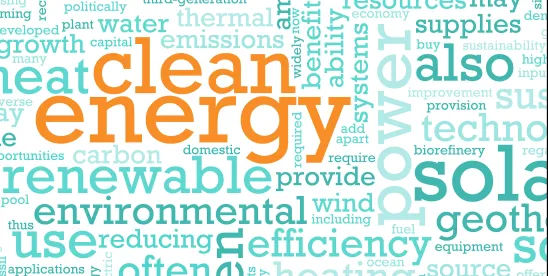When the Infrastructure Investment and Jobs Act (IIJA) was enacted in 2021, Congress made $13 billion available for investment directly into Tribal communities. The Inflation Reduction Act (IRA), enacted the following year, made at least another $720 million available for direct investment in Tribal communities. That was just the tip of the iceberg, with dozens of federal programs under the IIJA and IRA making additional funds available to Tribes through grant competitions and other funding mechanisms. In recent months, we have seen a number of federal programs funded under the IIJA and IRA unlock extraordinary opportunities for Tribal communities that will pay dividends for many decades, but Tribal communities must be positioned to take advantage of them. This article highlights just a few of those recent developments in Tribal funding opportunities in the clean energy space.
Potentially valued at $36 billion over ten years, the IRA created two new tax credit delivery mechanisms that extend the full value of IRA energy tax credits to organizations with little to no tax liability. This novel mechanism, known as “elective pay” or “direct pay,” allows tax-exempt entities, including Tribes, to receive the benefit of tax credits in the form of a tax refund. In February, the U.S. Department of Energy (DOE) outlined how this program will work for Tribes in its Tribal Nations and Native Communities Resource Guide. On March 5, 2024, the U.S. Treasury Department published final regulations implementing the program. The Treasury Department is working on a separate rulemaking now that will provide further clarity and flexibility for applicable entities that that co-own clean energy projects and would like to utilize direct pay.
On April 4, 2024, the U.S. Environmental Protection Agency (EPA) announced that it was investing $14 billion of IRA funds through the National Clean Investment Fund to support awards to three organizations. These organizations, in turn, will establish national clean financing programs that deliver accessible, affordable financing for clean technology projects. The largest award went to the Climate United Fund, at almost $7 billion, which will invest in “harder-to-reach market segments like consumers, small businesses, small farms, community facilities, and schools.” Climate United Fund has committed to provide at least 60% of its investments in low-income and disadvantaged communities, 20% in rural communities, and 10% in Tribal communities, supporting projects like energy efficiency home retrofits, electrification upgrades, and solar installations. The Coalition for Green Capital received $5 billion, and the Power Forward Communities received $2 billion. Both organizations have committed to making a majority of their investments in low-income and disadvantaged communities.
On April 22, 2024, the EPA announced $7 billion in grant awards under the Solar for All program, also funded by the IRA, which will deliver residential solar projects to over 900,000 households nationwide. More than $500 million of the funding has been awarded to six Tribal projects, to be managed by Midwest Tribal Energy Resources Association Inc. (for the benefit of 35 Tribes), the Three Affiliated Tribes (serving Tribes in five states), Tanana Chiefs Conference (for the benefit of Tribal residents throughout Alaska), Oweesta Corporation, Hopi Utilities Corporation, and GRID Alternatives. Recipients of the Solar for All grants are tasked with developing long-lasting solar programs to benefit Tribal communities. For example, GRID Alternatives will partner with Tribal Nations in five states—along with partners that include the Alliance for Tribal Clean Energy, Native CDFI Network, Native Renewables, and Tribal and community colleges—with a goal of ensuring that 50 percent of installation and development work come from the local Tribal workforce.
Among the recent announcements regarding federal funding for Tribal energy priorities, we have observed a number of investments through clean energy accelerators. An accelerator is an organization or program that gives startup businesses support—often in the form of guidance, technical assistance, marketing, funding, and/or access to investors—to help the businesses become independently viable. An accelerator can be publicly or privately funded.
In May 2023, the National Science Foundation awarded a grant to the Southern California Tribal Chairmen’s Association to lay the groundwork for a Tribal Energy Innovation Accelerator. The accelerator will “facilitate a mix of technical and non-technical collaborations to encourage the creation of new clean-energy equipment products and Tribal businesses, more resilient energy-producing systems, and workforce-training services.” The project, funded under the CHIPS and Science Act, is designed to complement other Tribal energy activities funded through the IRA.
In Alaska, the climate tech deployment accelerator Launch Alaska will leverage a $3.4 million Energyshed grant from the Department of Energy to help support at least $10 million in investments in Southeast Alaska and the Northwest Arctic region. Launch Alaska’s broader agenda is to support $1 billion in clean energy project development by 2030. But many of the beneficiaries of Launch Alaska’s work—including the Alaska Native villages of Kivalina, Shungnak, and Kotzebue—are remote Tribal communities that rely on diesel generators to serve their microgrids. With the help of the Energyshed grant, a minimum of three new projects will be matched with committed public and private funding.
A nationwide Tribal energy accelerator—The Tribal Solar Accelerator Fund—has been able to provide match funding for Tribes that have a cost-share funding need, including outstanding Department of Energy grant matching funds requirements, thereby leveraging IRA and other funding opportunities. The Fund manages a Tribal-led grantmaking program that supports solar projects in Tribal communities across the country, offers Tribal solar grant opportunities for Tribal communities and Tribal-led nonprofit organizations, as well as leadership development programs.
The IRA itself also established a clean technology accelerator, housed under the EPA, which aims to support distributed energy, net-zero buildings, and zero-emissions transportation projects. Unlike the three accelerators highlighted above, the Clean Communities Investment Accelerator (CCIA) does not itself invest in or support start-up companies. Instead, the CCIA has invested $6 billion through five organizations “to establish hubs that provide funding and technical assistance to community lenders working in low-income and disadvantaged communities, providing an immediate pathway to deploy projects in those communities.” Among the five recipients of CCIA funding is the Native CDFI Network, which received $400 million to enable 63 community lenders—including 58 Native CDFIs—to provide technical assistance, technical assistance funding, and capitalization funding to expand capacity for clean energy lending in Native communities. According to the EPA, each of the selectees will provide capitalization funding (typically up to $10 million per community lender), technical assistance subawards (typically up to $1 million per community lender), and technical assistance services so that community lenders can provide financial assistance to deploy projects where they are needed most.
These federally funded projects are, of course, just a sampling of the many initiatives under way across the nation to deploy clean energy infrastructure in Tribal communities. For more information on funding opportunities available to support clean energy projects in Tribal communities, we suggest visiting the following DOE website, which provides information on opportunities from the DOE and other federal agencies, as well as several non-federal entities:




 />i
/>i

